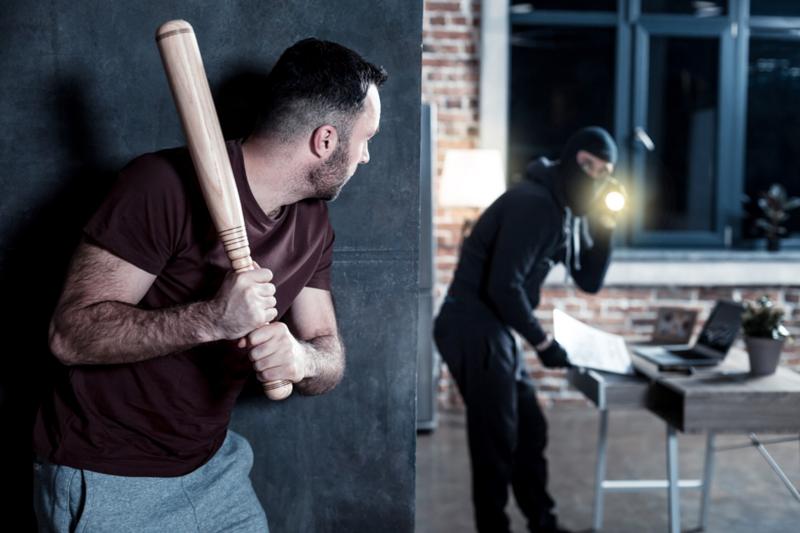Can a Criminal Sue for Personal Injury?

Imagine you wake up one night to the sight of an intruder in your bedroom. They have a weapon, but you do too. They threaten you with their gun, but you pull your revolver out of your nightstand and fire first. He could have killed you, but instead he has filed a lawsuit. After threatening your life, he wants you to pay for his hospital bills.
There have been plenty of cases where victims of horrible crimes were sued by a criminal. Fortunately, the majority of these cases will be thrown out by the court. However, there have been cases where the criminal has won.
When Can a Criminal Sue
Homeowners do not have a duty of care toward trespassers. Unlike your invited guests or workers you have paid to be at your home, you aren’t required to provide a reasonably safe environment for anyone who is not supposed to be in your home. In other words, if a burglar slips on a puddle of water in your house, it’s his problem, not yours.
Like everything else in life, however, there are exceptions to this. You can’t use deadly force to protect your property. You are also not allowed to set up booby traps. If you have frequent trespassers, you may need to put up a sign warning of any dangers. For example, if you have a body of water on your property and you know people trespass to swim there.
In any of these situations, a criminal can sue you and win. Some states do not allow the use of deadly force even if your life is being threatened. The best way to avoid being sued is to make sure you know the laws before you defend yourself.
You Can Sue a Criminal
If a criminal sues you, you may be able to counter-sue. Even if the criminal is involved in a criminal defense lawsuit, you can still sue them in civil court. Ask a lawyer for more information about the laws in your state, including how long the statute of limitations is. You may be able to sue a criminal for damages including the value of any property they damaged, any medical bills you have, and the cost of therapy.
In addition you may be able to sue for the same kind of damages any other injured person can claim, such as pain and suffering or money you need to pay someone else to care for you or perform household services. You can visit this link so a personal injury attorney can review the documents that you have available and advise you accordingly.

How a Criminal Case Can Affect Your Civil Case
Criminal defense charges and personal injury lawsuits are two kinds of cases with different purposes. Both are intended to punish the at-fault party by making them accountable for their negligent actions. A guilty verdict in a criminal case can be used as evidence in a civil case and can subsequently make your civil case stronger.
One way criminal and civil cases differ is that the government has a duty to prosecute criminal cases, whereas civil lawsuits are optional. The other major way they differ is there is a lower burden of proof in civil cases. You do not have to prove these cases beyond all reasonable doubt. You only have to prove that the defendant was responsible for your damages.
Another way a criminal who harms you may have to pay is through restitution that are ordered by the court. Restitutions do not include pain and suffering, but it can include costs like your medical bills, reward money, and other economic losses. In some cases, this restitution may even have interest added to it.
More to Read:
Previous Posts:





